One type of frontier is formed by contrasting models of data ownership, privacy rights, benefit-sharing, amongst other well-defined governance challenges. Here, the competing models are well understood and are operational in different parts of the world. For example, one could contrast Asia, Europe, and American approaches to gain understanding of the governance issues. While determining relative merits is highly contextual, it is possible to generate evidence and formulate evidence-based opinions. Key governance issues thus include ensuring that likely upsides and downsides of different governance structures are accounted for in policymaking through suitable checks and balances, and that provision is made for gaps in knowledge. Many of these gaps are known gaps, the so called known-unknowns where evidence may be lacking but we know where to look.
In contrast, the other frontier is formed at the edge of understanding, where we cannot fully grasp the consequences. The boundaries are fuzzy, with little insight into what lies beyond. Predicting the likely course is difficult due to many unknown-unknowns, and the way forward is illuminated by what Einstein called Gedankenexperimente, thought experiments conducted in his head rather than in a lab. While it remains desirable to hear multiple voices and ensure alignment with societal values, the governance is likely to be largely driven by a few opinion-shapers using counterfactual logic rather than evidence, simply because, at the limits of knowledge, the evidence is yet to be generated. This is analogous to the poet Valery’s man rowing a boat, entering the future facing backwards, able to look only into the past.
For example, let us take the consensus for health data privacy, as well as affordable and universal access to effective digital health systems, which is one of the starting points of the Commission. There is a relatively obvious contradiction between data needs of algorithms for effectiveness vs. data restriction effects of privacy. Taking it a level deeper, there are direct costs for compliance with data protection regulation, but indirect costs of data breaches. Digital infrastructure investments required for access may need to be defrayed by private capital, creating further contradictions between affordability and sustainability. Taken together, these clearly represent the first frontier of contrasting models. Interestingly, the evidence and possible answers come from within the heterogeneity that raises these questions. William Gibson, a science fiction writer, said that, “The future is already here, it’s just not very evenly distributed.” Most future possibilities under debate already exist within this uneven world at small scales. Better sensing and interpretation of these small signals can help. Diversity within the Commission, of backgrounds and expertise, makes it possible.
The second frontier is different. For example, one can take a biologically digital view of human health, starting with a digital genetic blueprint to quantifiable biochemical and physiological measurements of various functions. Today, one can modify the blueprint itself through genome editing, or continuously monitor and modulate the function via new technologies that have either been in existence for very short periods or are still on the drawing board. Here, there is no predicting the future from the past. Whether the future forecasted by Yuval Noah Harari, of genome editing/enhancement leading to speciation and biological castes, can come to be is purely speculative and unanswerable. The more relevant question is whether the World Health Organization expert panel tasked with developing standards for governance and oversight of human genome editing can provide a path by which the possibility can be minimised. The same is true for artificial intelligence and its further evolution.
As we consider digital health futures and its governance, the question is invariably of finding balance and leanness together. At first thought, one may imagine these to be opposites, given our past of regulation being used to impose balance. However, at the frontiers, this approach is unlikely to work. One of the tasks of the Commission is to suggest a different way – either by finding evidence within the natural experiments of the past or by Gedankenexperimente. Given the nascent nature of the field, it may be best to avoid predicting the future, but rather to engage people in thinking deeply about key issues so as to make better choices when faced with new questions.
Dean, BioSciences and Health Research, Trivedi School of Biosciences, Ashoka University
-
Dr Anurag Agrawalhttps://www.governinghealthfutures2030.org/author/daagdd-design/

